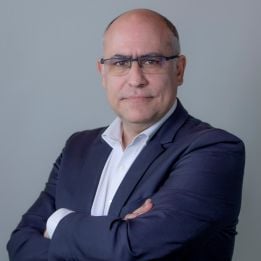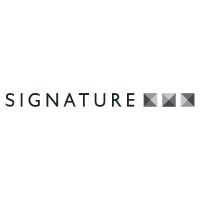

Group general counsel, vice president legal, risks and compliance, company secretary | Colas Group



Emmanuel Rollin
Group general counsel, vice president legal, risks and compliance, company secretary | Colas Group
Team size: 240
Career Biography
He spent 20 years at Bouygues Construction, serving successively as a major projects and project finance lawyer at Bouygues Travaux Publics (the civil works division) and at Bouygues Construction HQ, then as General Counsel of the building and property development divisions from 2006 to 2018.
At Bouygues Construction, Emmanuel was involved in several major operations (concession schemes, PPPs, Design and Build, and Turnkey contracts) in both civil works and building divisions, in France and internationally. He spent two years in South Korea in the framework of a Concession Project and almost one year in South Africa for a restructuring operation. He then supported the building divisions on property development projects in France and Switzerland.
Since 2018, Emmanuel has been with the Colas Group, as Group General Counsel, Chief Compliance Officer and Company Secretary, where he has developed and structured the legal and contract management function. His scope includes corporate governance, corporate matters (including M&A), compliance (criminal law, competition law, sanctions, investigations, etc.), tax, risk and insurance, contract management, audit, and internal control. The legal and contract management function at Colas comprises more than 240 in-house lawyers and contract managers across 40 countries.
At Colas, he has played a key role in several major M&A and restructuring operations, such as the delisting of Colas SA and the resolution of several major investigations.
The legal and contract management function has been developed to ensure that legal, compliance, and contract management are embedded within the business divisions themselves (road construction and maintenance, rail, quarries, bitumen retail) to provide the most efficient services.
To develop team proficiency, he created, with the Legal Executive Committee, the Colas Legal Academy – a focused, one-week training program that brings together 20 French-speaking and 20 English-speaking in-house lawyers and contract managers each year. During this intensive session, workshops are designed to achieve two primary objectives: first, to enhance participants’ understanding of expectations regarding their core responsibilities, and second, to facilitate networking and foster the development of soft skills.
Emmanuel is also active in digitisation and the development of AI tools. In recent years, Colas has developed digital tools to improve performance and monitoring in line with Loi Sapin 2 requirements, accelerate contract analysis, manage litigation, and report legal costs.
Emmanuel holds two master’s degrees in Business Law (DEA, Lyon 3) and International Business Law (DJCE/DESS, Aix-Marseille University). He also studied comparative law (US, English, and German) at Institut Edouard Lambert (Lyon 3), Universität Konstanz and Institut de Droit des Affaires (Aix), as well as German language at Goethe Institut (MZP).
He is also a lecturer for several years at the Institut de Droit des Affaires of Aix-Marseille University and Paris La Sorbonne University, teaching international contracts and compliance matters.
He is a member of the Board of Directors and Arbitration Committee of the Association Française d’Arbitrage.
How do you approach managing legal aspects during periods of instability or crisis to ensure the organisation’s resilience?
Legal function is one of the core tools to manage risks during periods of instability or crisis. Preventing risks is part of our core missions. In-house lawyers are then an essential actor of sorting out the difficulties.
What strategies do you employ to ensure the successful digital transformation of a legal department while maintaining compliance with your country’s data protection laws?
The Data Privacy Officer is one of our team members. She is involved at each step of the digital transformation, either at design stage or at implementation stage of each tool. This does apply to all digital tools, whether they are developed or bought for the legal function or for any other user in the Group.
Given the current geopolitical shifts and growing uncertainties around international free trade, has your company’s risk profile evolved, and are you taking measures to address these challenges?
Being a global company operating business in more than 50 countries lead naturally to a certain sensitivity regarding the current geopolitical shifts and growing uncertainties around international free trade. We have dedicated one person in the compliance department, who does develop its skills in terms of sanctions and gather information from our domestic in-house lawyers and authorities’ communication. This enables to assess the risks and to take the appropriate measures.
AI has been taken seriously as a potentially revolutionary technological change in the legal world for a number of years now. Has it had a meaningful impact in how your legal team works in this time?
AI becomes a customary tool for our teams. Actually, we have developed our own AI tools and bought some tools of the market. These tools are implemented successfully as we have decided to use them to improve our efficiency and not to replace our people. The time that is saved thanks to the use of AI is dedicated to focus on added value tasks and missions. The change management process that we used to implement these tools has also contributed to the success of this implementation.
What is a cause, business or otherwise, that you are passionate about? Why is this?
I am passionate about transmitting the know-how and making sure of the constant improvement of our efficiency.
To develop team proficiency, I created, with the support of my Legal Executive Committee, the Colas Legal Academy—a focused, one-week training program that brings together 20 French-speaking and 20 English-speaking in-house lawyers and contract managers each year. During this intensive session, workshops are designed to achieve two primary objectives: first, to enhance participants’ understanding of expectations regarding their core responsibilities, and second, to facilitate networking and foster the development of soft skills.
Regarding transmission, I am a lecturer for several years at the Institut de Droit des Affaires of Aix-Marseille University and Paris La Sorbonne University, teaching international contracts and compliance matters.
What factors influence your team’s decision to use external legal services versus handling matters in-house, and what criteria are used to evaluate their performance?
We are using external legal services in three occasions. First for litigation: litigation is a know-how and I believe that we shall always externalise these tasks, even if we remain involved in the case management and we design the litigation strategy. This includes criminal and competition law matters.
Second for expertise: it may happen that a topic requires the opinion of a true expert on a specific matter. The company can’t afford having such an expert in-house.
Third for special operations: major investigations, M&A and Project Finance require too many people and our teams need the support of specialists in these legal fields.
Directeur Juridique, Conformité et Risques – Secrétaire du Conseil d’Administration / Group General Counsel & Chief Compliance Officer – Company Secretary | Colas
Group general counsel, vice president legal, risks and compliance, company secretary | Colas Group